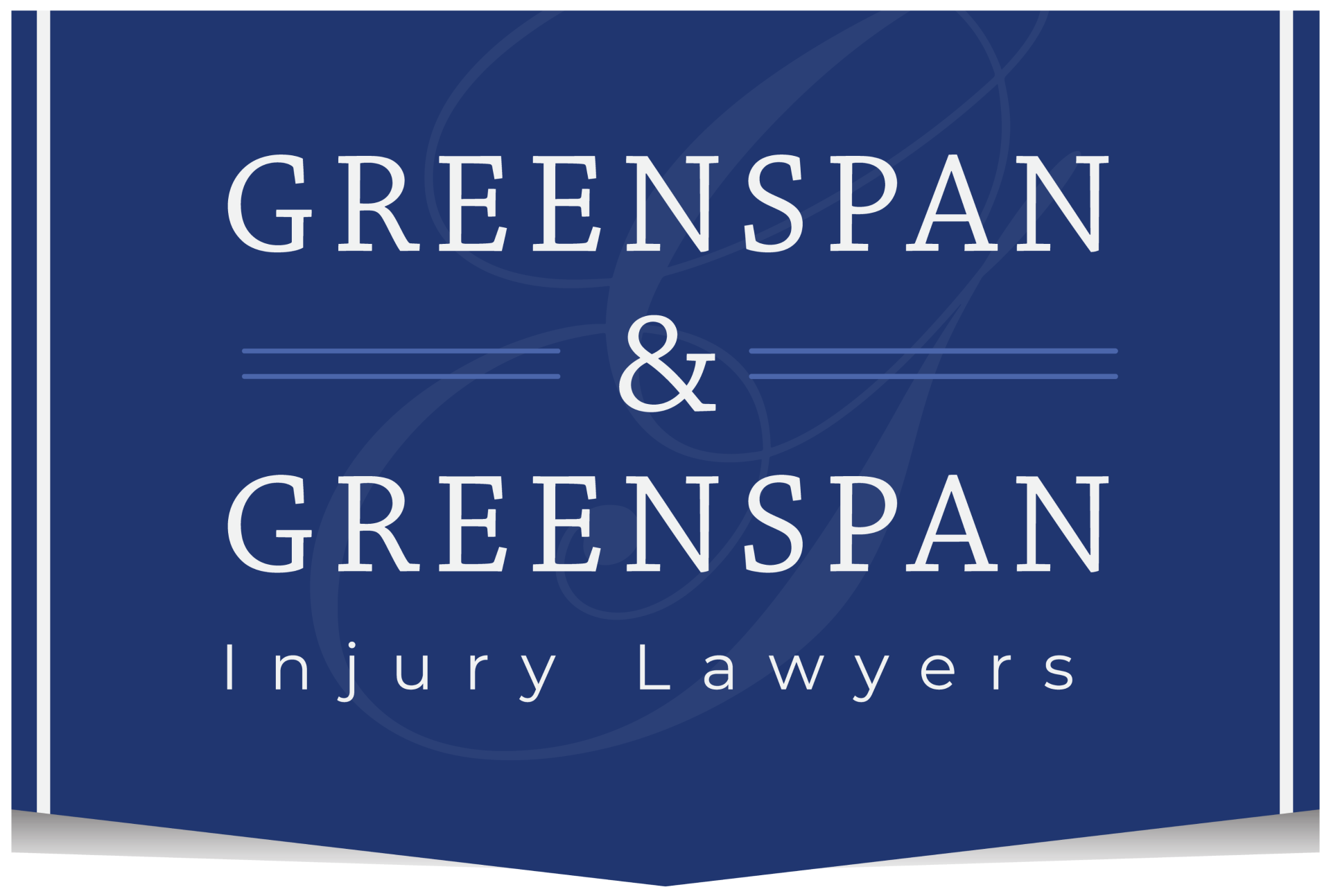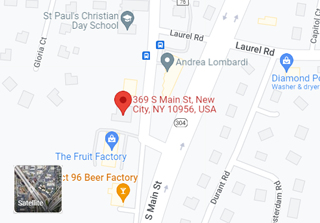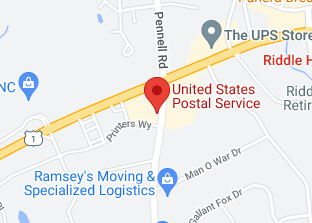Rockland County DWI Lawyers Helping Clients Build a Successful Criminal Defense
If you’ve been arrested for DWI in Rockland County, contact a DWI defense attorney immediately to fight for reduced penalties or even dismissal. Greenspan & Greenspan has over 30 years of experience defending clients in DWI cases in Rockland County.
Everyone makes mistakes. We like to think that we are in a good enough condition to get behind the wheel of a car, but sometimes we’re only fooling ourselves. If the police ever arrest you on DWI charges, it is vitally important that you seek legal advice from an experienced Rockland County DWI defense attorney without delay.
At Greenspan & Greenspan, our team has provided Rockland County clients with legal services involving all manner of traffic violations and DWI arrests. While no results can ever be guaranteed in any legal matter, you can feel confident that your Clarkstown DWI attorney has the experience and knowledge necessary to help you through the process in pursuit of a satisfactory outcome.
Greenspan & Greenspan has over 30 years of experience serving New City (which is part of the town of Clarkstown), Orangetown and the surrounding Rockland County area. As your DWI defense lawyer, we will fight on your behalf to see penalties reduced, sentencing lightened, and potentially even see charges dropped entirely.
Key Takeaways
- DWI charges in New York carry severe penalties, including fines, jail time, and license suspension.
- Legal representation can help reduce charges, penalties, or potentially dismiss cases.
- Various factors, such as BAC level and refusal of chemical tests, influence the severity of DWI consequences.
- Greenspan & Greenspan offers free consultations for DWI defense cases in Rockland County.
- Schedule a free consultation to discuss your case with Greenspan & Greenspan.
What Are the Different Types of DWI Offenses in New York State?
New York laws include several variables related to DWI charges and arrests. These additional charges can result in harsher sentencing. Section 1192 of the Vehicle & Traffic Law contains various types of DWI offenses in New York, including:
- Aggravated DWI,
- Assault and other violent crimes,
- Chemical test refusal (such as a BAC test),
- Commercial driver’s license holders charged with a DWI,
- Driving while ability impaired by alcohol (DWAI),
- DWI with a child passenger,
- First-time offenders,
- Manslaughter,
- Out-of-state and foreign national DWI offenders,
- Probation violation,
- Repeat offenders,
- Resisting arrest or disobeying the police,
- Underage DWI, and
- Zero Tolerance Law.
Please note that every DWI charge is serious and deserves your respect. You must consult with an experienced criminal defense attorney to discuss the particulars of your case. Please contact our law office to schedule your confidential case evaluation and learn about the legal services that a New City DWI attorney can offer you.
Administrative License Hearings
Before you are charged with DWI, you are given the option to take a chemical test to determine your blood alcohol content (BAC). If you refuse to submit to this test, you are subject to the suspension or revocation of your driver’s license. In New York, the Department of Motor Vehicles schedules an administrative license hearing to determine whether or not your license should be suspended or revoked.
If you or your loved one has been arrested for a DWI in Rockland County, contact our New City DWI attorneys today for a free consultation.
What Must the Police Show to Prove You Refused to Submit to a Test?
Administrative hearings before the DMV are civil proceedings and separate from your criminal charges. To show that you refused a chemical test, the state must show that the police had probable cause to stop your vehicle. In certain instances, such as when you were stopped at a sobriety checkpoint, special rules apply to ensure that the checkpoint was properly established.
In addition, the state must prove that you persistently refused to take a breathalyzer test or another chemical test, such as a blood or urine test. The state must also show that you understood the warnings. Many police officers will simply read the required information from a card. You may have signed or initialed something indicating that you understood the consequences of a refusal.
Our Clarkstown DWI lawyers will look closely at the evidence against you and prepare the strongest possible case. If we cannot prevent the loss of your license, we will still raise every available defense in your criminal case.
Protect Your Rights After a DWI Charge – Contact Our Experienced Attorneys Today!
Basic Criteria for a DWI or DWAI
Avoiding a DWI or DWAI arrest and subsequent consequences starts with knowing the elements of the crime or infraction. Under New York law, there are different levels of alcohol related driving offenses, including DWI, and the state could charge you if the following circumstances apply to you while you are driving:
- The state can charge you with a DWAI if your blood alcohol level is over .05 and less than .07;
- The state can charge you with a DWI if your blood alcohol level is at least .08;
- The state can charge you with an aggravated DWI if your blood alcohol level is at least .18;
- The state can charge you with a level I offense if you are a commercial driver with a blood alcohol level that is at least .04 and less than .06;
- The state can charge you with a level II offense if you are a commercial driver with a blood alcohol level that is more than .06 but less than .08;
- The state can charge you if you are a commercial driver who is under 21 with a blood alcohol level of at least .02 but less than .04; and
- The state can charge you under its Zero Tolerance Law if you are younger than 21 and your blood alcohol level is between .02 and .07.
The above violations come with heavy penalties, especially if you have a prior conviction or caused significant damage to a third party. A DWI or DWAI defense attorney from our DWI law firm can shield you from unnecessary or avoidable consequences.
What Are the Potential Consequences for Being Charged with a DWI?
New York state laws have different possible penalties for each type of criminal driving offense.
Depending on a history of DWI charges, more significant penalties can be added. Penalties may also be enhanced depending on the severity of injuries and damages caused by negligent driving. Related felonies or a felony committed while under the influence could also result in harsh punishments. And those convicted for vehicular manslaughter, violent crimes, or assault with a motor vehicle could face decades behind bars.
To ensure that your rights are adequately looked after, you must hire a Rockland County DWI defense lawyer to build your criminal defense. The sooner you hire a lawyer, the better your chances will be in and out of court as the case proceeds to the next stage.
Aggravated DWI
Under New York state drunk driving law, a blood alcohol concentration of .18 percent or higher is the aggravating circumstance that can turn a basic charge into an aggravated DWI.
An aggravated DWI arrest has a mandatory fine of at least $1,000, a maximum jail term of one year, and a mandatory revocation of a driver’s license for one year. If you have received two or more aggravated DWIs in less than a decade, your sentencing will be more severe, with potential fines of up to $10,000 and seven years spent behind bars.
First Offense DWI
A conviction for first-time DWI has a mandatory minimum fine of $500 (but it could be as much as $1,000), a maximum jail sentence of one year, and the revocation of a license for six months.
First-time offenders over the age of 21 may be able to have a misdemeanor DWI charge reduced through a plea bargain to DWAI—driving while ability impaired. Each case is different, and there are many factors that will determine your eligibility for a reduced charge. DWAI is a traffic infraction, not a criminal offense.
Underage DWI
For a college student or teen arrested for drunk driving, zero–tolerance policies and a combination of severe New York statutes can mean tough penalties. To learn about the best ways to deal with a DWI or DWAI charge related to underage drinking, contact Greenspan & Greenspan P.C. to discuss your case with an experienced defense lawyer.
Our goal in an underage drinking and driving case is to protect a young client from the worst potential consequences of a conviction. We not only consider the jail time and driver’s license revocation that could result from an underage DWI charge, but we also look out for the long-range interests of the people we serve. Will a conviction affect your standing at school or your ability to get to work? What about the risk of punishment on a future drunk driving arrest?
For a driver under 21, a blood alcohol level of just .02 percent will support a conviction of an alcohol-related offense under New York law. The underage motorist does not even have to be impaired, let alone intoxicated, in order to violate New York law.
Are you Required to take a Breath Test to Check Blood Alcohol Content?
If a police officer suspects that you are intoxicated by booze or under the influence of drugs, they may ask that you take a breathalyzer test or chemical test to determine your blood alcohol content. You may wonder if you have the right to deny a breath test.
The answer is complicated.
Understand that if you refuse a police officer’s request to submit to a chemical test (either the breathalyzer or a blood test), you will be facing fines and the revocation of your license for one year! If you are not a New York resident, then your privilege to operate a motor vehicle in New York will be suspended for one year if you have been found to have refused a valid request for you to submit to the chemical test.
In the state of New York, all licensed drivers operate under ‘implied consent’ laws. If you went through the necessary legal steps to obtain a driver’s ID so that you may drive on state and city roads, then the state requires that you follow the laws inherent in occupying those roadways. This includes taking a test to determine if you are illegally intoxicated while operating a vehicle.
If the police officer operates under all necessary civil law guidelines, you will be required to undergo the test at their request. If you refuse to do so, you may be charged with a ‘chemical test refusal.’
Plea Negotiations
Any prosecuting attorney or defense lawyer will tell you that most criminal cases are resolved through a negotiated plea agreement. To get a clear understanding of your plea options in a DWI case, contact an experienced DWI defense lawyer in Rockland County. We work in the courts of Westchester and Rockland counties practically every day, and we are highly familiar with the narrow room for plea negotiation that remains available for people charged with any drunk driving offense.
Compromising DWI Charges in Rockland County
Only rarely and under unusual circumstances will you have the chance to plead to a nonalcohol-related traffic offense after a DWI arrest. The usual objective for a defense attorney is to convince the prosecution to accept a DWAI violation plea as a way to compromise a misdemeanor DWI charge. If your case is charged as an aggravated DWI based on high blood alcohol concentration, a good result might well be a plea to basic DWI.
The decision to plead guilty to a criminal charge or take the case to trial always belongs to the client. It is your attorney’s job to give you accurate advice about your options and the relative strength of any potential trial defense. At the same time, your lawyer should work toward the best possible plea terms available, especially on sentencing issues.
New York law still provides for a broad range of penalties in DWI cases, and the attorneys of Greenspan & Greenspan P.C. have a good idea of what a favorable outcome looks like under the facts of a given case. We also know how to protect clients from the collateral consequences of a conviction, especially in cases where a DWI or DWAI plea could affect professional interests or family relationships.
Even if we can shake the prosecution’s confidence in its DWI case, many charges are resolved by pleading to the lesser offense of DWAI (driving while ability impaired) by alcohol. A first or second-offense conviction of DWAI is not a criminal offense, but only a traffic infraction.
Town of Clarkstown Justice Court
The Clarkstown Justice Court handles civil and criminal cases and has criminal jurisdiction for most misdemeanor cases as well as traffic offenses. It is located at:
20 Maple Ave.
New City, NY 10956
Steps to Take After a DWI Arrest
Being pulled over on suspicion of a DWI is a nerve-wracking event. We hope you are never in this situation, but if you are, the following steps can help you keep a cool head and may protect you from dire consequences.
Keep Your Words to a Minimum
You probably already know that anything you say in the presence of an officer can be used against you in court. If the police pull you over, do not over-explain yourself or answer questions that were not asked. You may also want to invoke your right to remain silent and wait for attorney assistance before answering questions about your behavior, such as how much you had been drinking before. Of course, you must still comply with officer requests to present your license and registration or to keep your hands visible.
It is critically important that you remain calm and respectful when dealing with police and other law enforcement officers. Losing your temper can only hurt your case!
After you are released from arrest, you want to avoid speaking about your case to others.
Contact an Attorney Immediately
An attorney’s help in any criminal setting is crucial to protecting your rights. Ask for an attorney and contact a DWI lawyer in Rockland County as soon as possible. You may have time to call an attorney during the lulls of your traffic stop. But if you have been arrested or are unable to talk to an attorney before being taken to the police station, tell the police that you would like to speak to a lawyer before there is further questioning.
This request will limit what questions the police can force you to answer, but you must also maintain your silence during this time. Waiting to consult an attorney before talking to police can keep you from incriminating yourself or answering questions you are not required to answer. Once legal proceedings begin, an attorney can help ensure that the prosecution does not step out of bounds and that you receive a proper defense. We can guide and protect you during every stage of a DWI issue.
You Will Likely Want to Submit to the Blood Alcohol Test
As we mentioned above, you gave your implied consent to submit to a blood alcohol content (BAC) test when you requested and received a New York driver’s license. If you deny a blood alcohol test, the prosecutor will ask the judge at your first court appearance to suspend your license for the duration of the case. Losing your driving privileges can significantly disrupt your life and potentially harm your employment.
Choose the Blood Draw BAC Test If You Have the Option
There are several ways to test an individual’s blood alcohol level, including:
- Breath,
- Blood,
- Saliva, and
- Urine.
Due to your implied consent, an officer can demand that you submit to a breath test in the field unless you want to forfeit your license. If your breath test indicates that you have been drinking, the officer may order you to submit to chemical testing using one of the sample types we listed above. A test from a blood draw is more accurate than a breath test, so it is typically the go-to selection to make when you have an option. Electing the blood test may also give you or your attorney more strategic options regarding evidentiary rules and questioning witnesses at trial. Still, you may not be given the choice of what chemical test to submit to.
Ways to Get a Rockland County DWI Dismissed
Not all DWI cases make it through trial. You may have an option to seek dismissal of your DWI case if you can prove problems such as the following:
- An indictment or information against you was defective,
- The prosecution did not timely exchange evidence with you,
- The police or prosecution committed misconduct during your arrest or litigation of your case,
- You pleaded to a lesser offense in exchange for dismissal of the DWI charge,
- The state did not allow you to attend your grand jury hearing, or
- The evidence against you was insufficient.
The above are a handful of ways you may be able to get your case thrown out of court. However, you must be careful when exercising some of these options, especially when considering a plea to a lesser offense. Pleading to a lesser offense could still seriously affect your professional and personal life. Speaking to a New City DWI attorney before you have to appear in court is vital to safeguarding as many of your interests as possible.
Schedule a Free Consultation with a Rockland County DWI Defense Lawyer
If you’ve been charged with a DWI in the state of New York, it is imperative that you hire the legal representation of an experienced DWI attorney without delay. Whether your arrest relates to a probation violation or something far more deadly, the state prosecution will pursue these charges to the furthest extent of the law in an attempt to make an example out of you. The sooner your DWI attorney has a chance to begin crafting a defense, the better your chances of finding your way to a favorable outcome.
Greenspan & Greenspan serves clients in Westchester County and across the lower Hudson Valley region of New York who have been arrested on DWI charges. Contact our law office to speak with a New City DWI attorney today.
You may schedule your free consultation by contacting our New City office by phone at (845) 422-8060. Or call our White Plains office at 914.946.2500





